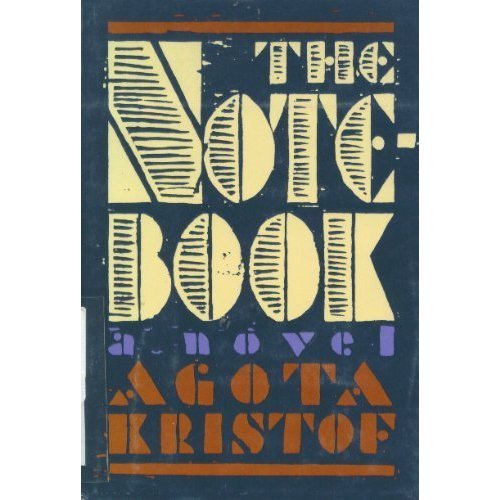
In this series, Noah Charney asks an author to choose a favorite novel that he or she thinks is a hidden gem, deserving of more attention.
Noah Charney talks to Eimear McBride about Agota Kristof’s The Notebook.
When Slavoj Zizek writes of a book that, “awoke in [him] a cruel and cold passion,” attention is due. And when a novelist of the talents of Eimear McBride says to read it, I grab the nearest Kindle and get moving. Agota Kristof’s The Notebook is actually a novella, one of three linked works (along with The Proof and The Third Lie) but it functions perfectly well as a stand-alone book. Set nominally in Kristof’s native post-war Hungary, and originally written in French, The Notebook tells the story of twin boys who are left at their grandmother’s house in the country, very much against the will of all parties. The work is written in a minimalist style, stripped of adjectives and emotion, which is something of a mercy, because horrible things happen here, and thanks to Kristof’s remarkable narrative voice, we are able to approach them. Eimear McBride selected in the first installment of The Believer’s new monthly series, “You Should Really Be Reading This…”
Eimear McBride was born in Liverpool to Irish parents and tore onto the literary scene in 2013, with her acclaimed novel, A Girl is a Half-Formed Thing. Written in six months, it took nine years for the novel to find a publisher, and was finally released by Galley Beggar, a small press in Norwich, England. The novel won her the 2014 Bailey’s Women’s Literature Award and the inaugural Goldsmiths Prize in 2013, sent her on a world tour, and made her a household name among those who love literary fiction. Her novel is written in a stream-of-consciousness that recalls the final chapter of Ulysses, Beckett’s monologues, or Arthur Kopit’s Wings.
Read along with us for next month, when we will speak with Kate Zambreno about A Cannibal and Melancholy Mourning by Catherine Mavrikakis.
—Noah Charney
I. MORE THAN HUMAN
NOAH CHARNEY: Why did you choose The Notebook?
EIMEAR MCBRIDE: It’s a book that I was only introduced to, myself, at the beginning of the year. I was amazed that I had never heard of it before. I found it profoundly disturbing, incredibly well-written, and very brave. And the fact that it was written by a woman—it has a startling brutality and ferocity about the style that I find very inspiring.
NC: The voice is very simple, fairy-tale-like, masking the brutality. What do you feel that narrative choice allows, that another style of writing might not permit? From an author’s perspective,...
You have reached your article limit
Sign up for a digital subscription and continue reading all new issues, plus our entire archives, for just $1.50/month.
Already a subscriber? Sign in




